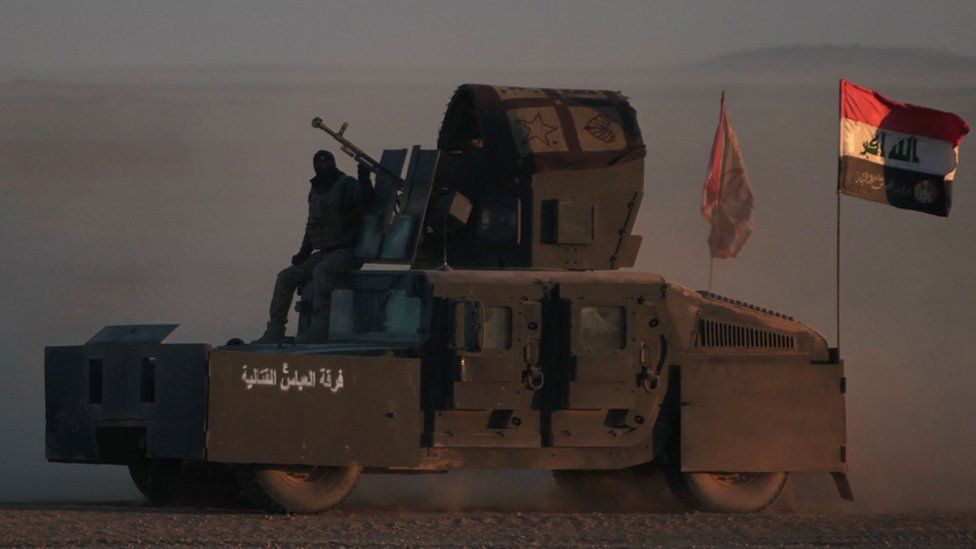Governments 'must address corruption to defeat IS', says report
- Published

So-called Islamic State (IS) will never be defeated unless the corrupt conditions that help it to thrive are addressed, a new report claims.
Transparency International accuses western governments, including the UK and the US, of ignoring corruption as a major driver towards terrorism, notably in the Middle East.
It calls on them to press far harder for accountability in military budgets.
The report comes as Iraqi forces advance on the IS stronghold of Mosul.
The report, entitled The Big Spin, argues IS took advantage of corruption to radicalise and recruit people, presenting itself as the antidote while ignoring its own dishonest activities.
"Corruption is a rallying cry, an enabler and a key modus operandi for IS," said Katherine Dixon, director of Transparency International Defence and Security.
"The failure to grasp this undermines efforts to tackle the rise of violent extremism.
"The international community expends great efforts tackling the 'ideology' of groups such as ISIS, focusing on the religious rhetoric they produce, yet completely ignoring the material circumstances in which they thrive."
Transparency International, which campaigns against corruption in governments, outlines a number of recurring themes used by IS to recruit people in its research.
In social media posts, it highlights systematic corruption - including nepotism and bribery - while presenting itself as a provider of security, justice and welfare.
It also plugs into a sense of discrimination felt by Sunni groups, and suggests the West and its allies are complicit in the corruption.
What's more, corruption has physically weakened some forces - like the Iraqi army, which did not have enough soldiers to combat IS when it first attacked Mosul because thousands of people were being paid, but not actually working.
Ms Dixon warns this means that without addressing the problem at the highest level IS will not be defeated.
In particular, Ms Dixon - who co-authored the report - said "what we shouldn't be doing is putting western taxpayers' money into helping create exploitative, predatory state forces".
"This is not just about closing off the corrupt channels that enable the day-to-day operations of groups like IS, but rethinking relationships with the Mubaraks [in Egypt], Gaddafis [in Libya] and Malakis [in Iraq] of the future," said Ms Dixon.
"Corruption is a real security threat, more than just a means for elites to line their pockets. In the end corrupt governments by fuelling public anger and undermining institutions, are the architects of their own security crises."